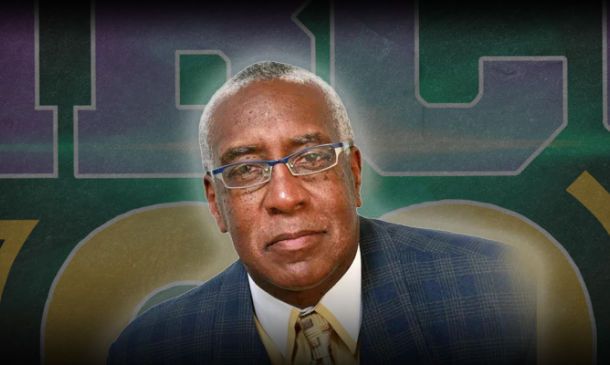HBCU sports became the beneficiary of a landmark broadcast and streaming agreement allowing hundreds of athletic events to be viewed by millions across the country.
HBCU Go, a Bryon Allen-run streaming service, will house coverage of 107 Black colleges, with sports programming involving the CIAA and SWAC to be carried on CBS-owned stations in TV markets stretching from New York to Los Angeles.
The arrangement with the SWAC, in particular, is a 10-year, $120 million deal as reported by HBCU Legends.
As a result of the deal, sporting events will be reportedly available in 60 percent of U.S. households and 70 percent of African American homes.
Black college sports receiving this level of interest and exposure has been the long-held vision of HBCU GO CEO Curtis Symonds, whose 40-year media resume included stints at BET and ESPN.
Also read: CIAA football to be televised on several platforms, including HBCU GO
“What I wanted to try to do was continue to bring exposure to HBCUs,” Symonds told HBCU Sports in a phone interview in July of his decade and a half journey to get more eyeballs on Black college athletics. “If I could figure out a way to give these schools more exposure by being on some type of streaming service or whatever, people would become much more aware of what HBCUs were all about.”
How George Floyd protests helped propel HBCU broadcast vision
Symonds, who has ties to HBCUs through his parents who taught at Central State University, spent years attempting to acquire capital to platform Black colleges.
He did it at BET in a groundbreaking fashion when he convinced network founder Robert Johnson to move away from the tape delay model to live game broadcasts while sacrificing slots that would be normally dedicated to popular music videos.
Years later, Symonds was just as confident he could do it again in a different way if the right opportunity — and financial benevolence — came along.

Sparked by the police killing of George Floyd in Minnesota and the international protests that followed, a ground swell of allure in examining inequities resulted in mainstream support for Black causes.
“People would say, ‘Ah, it’s a good idea, but I don’t know if anyone would put any money into it,”’ he said. “Once George Floyd happened, then everybody jumped on the bandwagon.”
Symonds then partnered with Allen, a Black media mogul who shared a similar perspective of how HBCU content could be transformed and packaged to a national audience not seen since the old days of BET decades ago.
There was a shift in the matrix, so to speak. Former high-profile professional basketball and football players such as Deion Sanders, Eddie George and Mo Williams were now head coaches at HBCUs.
Corporate America and wealthy social influencers — which had largely ignored Black schools save for special occasions over the years — were now throwing their brands and millions behind efforts to prop up institutions.
‘It’s going to be a quality production’
Launched in 2012 and acquired by Allen Media Group in 2021, HBCU Go will be at the forefront of HBCU programming, including rights to broadcast select football games during the 2022-23 season.
Content of some sort will be available for free through The Grio, HBCUGO.TV, Local Now, SPORTS.TV and via 34 other national television and digital spaces. HBCU GO programming is available on Roku, Amazon Fire TV, and Apple TV. Viewers can also access programming by downloading the HBCU GO App.

While there is much excitement surrounding the launch of the venture and all its potential, Symonds explained that “we have a lot of work to do” to “prove that we can deliver a good product.”
The veteran media executive, however, assures that viewers will experience game presentations of similar standards to national networks.
“Bryon is investing in delivering a quality game, he said. “It’s going to be some quality production. It’s going to be like ABC, CBS and NBC and ESPN. It’s gonna be where people say, ‘Damn this is the real deal here.’ That’s our goal.”
To gain immediate credibility, HBCU Go will have Charlie Neal, the ‘voice of black college football,’ says Symonds, as its lead play-by-play announcer for the debut broadcast on Sept. 10 when Florida A&M hosts Albany State.
But more than just a familiar name in the booth and slick presentations, the ultimate goal is to create a large, diverse audience with “crossover viewership” in the first year, he said.
“Distribution is the lifeblood,” said Symonds. “Our stuff is free and it’s attainable. We are telling the story of HBCUs 365 days, 24 hours a day. You will always be able to find information about these schools.”


















